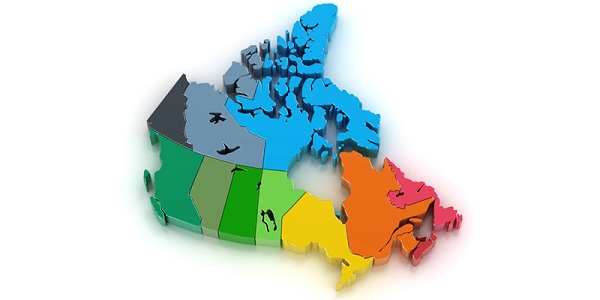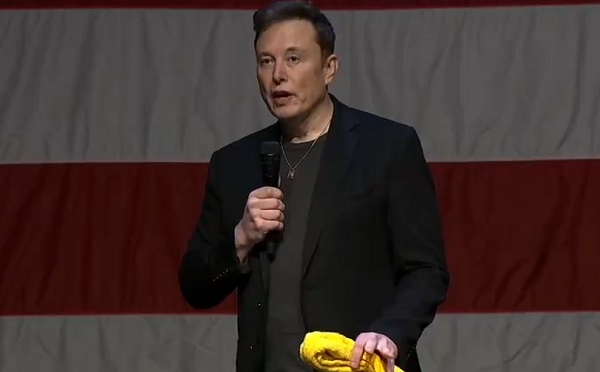News
UPDATE: highway 9 now open – Oyen RCMP investigate multiple vehicle collision on Highway 9

UPDATE #4
August 21, 2019
Oyen RCMP investigate multiple vehicle collision on Highway 9
Oyen, Alta. – Highway 9 at Range Road 72 remains closed. Crews are continuing to clear the collision scene which includes the recovery of the dangerous goods contained in one of the semi trucks. The road blockage is still expected to last until approximately 12:00.
Three people involved in this collision were confirmed deceased on scene. Two people were critically injured and transported via air ambulance to area hospitals. Eight other people were injured and either treated on scene or transported to local hospitals.
Through the night, several RCMP detachments were involved in managing this incident, including Coronation, Redcliffe and Hanna. The RCMP collision analyst attended. Support for people involved in the crash was received from the Victim Services Unit, including the use of the Oyen Legion.
The investigation into this collision remains a lengthy process given the nature of the crash scene. It is anticipated that it will take several weeks for the collision analyst to complete the investigation. If there is an update to be provided at that time, the RCMP will provide an update.
UPDATE #3
August 21, 2019
Oyen RCMP on scene of multiple vehicle collision on Highway 9
Oyen, Alta. – Highway 9 at Range Road 72 remains closed while crews continue clearing the collision scene. Hazmat teams will be attending the scene later this morning to assist with the clean-up. Based on the complexity of the clean-up, the road blockage is expected to last until approximately 12:00 noon.
Traffic on Highway 9 is being re-routed eastbound to Highway 884 and westbound to Highway 41. Motorists are being asked to avoid the area.
Additional updates will be provided once details are confirmed by investigators.
BACKGROUND
UPDATE #2
August 20, 2019
Oyen RCMP on scene of multiple vehicle collision on Highway 9
Oyen, Alta. – Shortly after 8:00 p.m. this evening, the fire was extinguished at the collision scene, and the RCMP collision analyst is on scene to conduct an examination and investigation.
It is confirmed that 10 vehicles were involved in the collision; seven passenger vehicles and three semi truck units.
While the collision analyst is expected to take approximately three more hours, there will be a further delay while vehicles are towed and the highway is cleaned. It is anticipated that the road will remain impassable until early tomorrow morning.
This remains an active investigation. A confirmation in relation to the number of people injured and/or deceased will be provided tomorrow. No further information will be provided this evening.
UPDATE #1
August 20, 2019
Oyen RCMP on scene of multiple vehicle collision on Highway 9
Oyen, Alta. – The RCMP are requesting that any witnesses, or people involved in the collision, or people requiring assistance in relation to the collision, to attend the Legion in Oyen. Food is available at the Legion, as well as Victim Services Unit members and RCMP.
Preliminary reports indicate that there were approximately 12 vehicles involved in the collision, some of which are semi tractor trailer units. One of the semi trucks was hauling fuel and the fuel ignited, causing several vehicles to catch fire. A second semi was hauling butane. The collision area is consumed with flames.
There is no confirmed information available in relation to the number of injured people and/or fatalities.
The RCMP anticipate that it will be several hours before support units will be able to access the collision scene to do an examination.
As more information is confirmed, the media will be updated.
Aug. 20, 2019
Oyen RCMP on scene of multiple vehicle collision on Highway 9
Oyen, Alta. – Oyen RCMP are currently on scene of a collision involving multiple vehicles on Highway 9 at Range Road 72 between Chinook and Cereal, Alberta which occurred at approximately 3:30 p.m.
RCMP are asking motorists to avoid the area or expect delays. Traffic on Highway 9 is being re-routed eastbound to Highway 884 and westbound to Highway 41.
No further information is available at this time. An update will be provided.
Business
Broken ‘equalization’ program bad for all provinces

From the Fraser Institute
By Alex Whalen and Tegan Hill
Back in the summer at a meeting in Halifax, several provincial premiers discussed a lawsuit meant to force the federal government to make changes to Canada’s equalization program. The suit—filed by Newfoundland and Labrador and backed by British Columbia, Saskatchewan and Alberta—effectively argues that the current formula isn’t fair. But while the question of “fairness” can be subjective, its clear the equalization program is broken.
In theory, the program equalizes the ability of provinces to deliver reasonably comparable services at a reasonably comparable level of taxation. Any province’s ability to pay is based on its “fiscal capacity”—that is, its ability to raise revenue.
This year, equalization payments will total a projected $25.3 billion with all provinces except B.C., Alberta and Saskatchewan to receive some money. Whether due to higher incomes, higher employment or other factors, these three provinces have a greater ability to collect government revenue so they will not receive equalization.
However, contrary to the intent of the program, as recently as 2021, equalization program costs increased despite a decline in the fiscal capacity of oil-producing provinces such as Alberta, Saskatchewan, and Newfoundland and Labrador. In other words, the fiscal capacity gap among provinces was shrinking, yet recipient provinces still received a larger equalization payment.
Why? Because a “fixed-growth rule,” introduced by the Harper government in 2009, ensures that payments grow roughly in line with the economy—even if the gap between richer and poorer provinces shrinks. The result? Total equalization payments (before adjusting for inflation) increased by 19 per cent between 2015/16 and 2020/21 despite the gap in fiscal capacities between provinces shrinking during this time.
Moreover, the structure of the equalization program is also causing problems, even for recipient provinces, because it generates strong disincentives to natural resource development and the resulting economic growth because the program “claws back” equalization dollars when provinces raise revenue from natural resource development. Despite some changes to reduce this problem, one study estimated that a recipient province wishing to increase its natural resource revenues by a modest 10 per cent could face up to a 97 per cent claw back in equalization payments.
Put simply, provinces that generally do not receive equalization such as Alberta, B.C. and Saskatchewan have been punished for developing their resources, whereas recipient provinces such as Quebec and in the Maritimes have been rewarded for not developing theirs.
Finally, the current program design also encourages recipient provinces to maintain high personal and business income tax rates. While higher tax rates can reduce the incentive to work, invest and be productive, they also raise the national standard average tax rate, which is used in the equalization allocation formula. Therefore, provinces are incentivized to maintain high and economically damaging tax rates to maximize equalization payments.
Unless premiers push for reforms that will improve economic incentives and contain program costs, all provinces—recipient and non-recipient—will suffer the consequences.
Authors:
National
Liberals, NDP admit closed-door meetings took place in attempt to delay Canada’s next election

From LifeSiteNews
Pushing back the date would preserve the pensions of some of the MPs who could be voted out of office in October 2025.
Aides to the cabinet of Prime Minister Justin Trudeau confirmed that MPs from the Liberal and New Democratic Party (NDP) did indeed hold closed-door “briefings” to rewrite Canada’s elections laws so that they could push back the date of the next election.
The closed-door talks between the NDP and Liberals confirmed the aides included a revision that would guarantee some of its 28 MPs, including three of Trudeau’s cabinet members, would get a pension.
Allen Sutherland, who serves as the assistant cabinet secretary, testified before the House of Commons affairs committee that the changes to the Elections Act were discussed in the meetings.
“We attended a meeting where the substance of that proposal was discussed,” he said, adding that his “understanding is the briefing was primarily oral.”
According to Sutherland, as reported by Blacklock’s Reporter, it was only NDP and Liberal MPs who attended the secret meetings regarding changes to Canada’s Elections Act via Bill C-65, An Act to Amend the Canada Elections Act before the bill was introduced in March.
As reported by LifeSiteNews before, the Liberals were hoping to delay the 2025 federal election by a few days in what many see as a stunt to secure pensions for MPs who are projected to lose their seats. Approximately 80 MPs would qualify for pensions should they sit as MPs until at least October 27, 2025, which is the newly proposed election date. The election date is currently set for October 20, 2025.
Sutherland noted when asked by Conservative MP Luc Berthold that he recalled little from the meetings, but he did confirm he attended “two meetings of that kind.”
“Didn’t you find it unusual that a discussion about amending the Elections Act included only two political parties and excluded the others?” Berthold asked.
Sutherland responded, “It’s important to understand what my role was in those meetings which was simply to provide background information.”
Berthold then asked, “You nevertheless suggested amendments to the legislation including a change of dates?”
“My role was to provide information,” replied Sutherland, who added he could not provide the exact dates of the meetings.
MPs must serve at least six years to qualify for a pension that pays $77,900 a year. Should an election be called today, many MPs would fall short of reaching the six years, hence Bill C-65 was introduced by the Liberals and NDP.
The Liberals have claimed that pushing back the next election date is not over pensions but due to “trying to observe religious holidays,” as noted by Liberal MP Mark Gerretsen.
“Conservatives voted against this bill,” Berthold said, as they are “confident of winning re-election. We don’t need this change.”
Trudeau’s popularity is at a all-time low, but he has refused to step down as PM, call an early election, or even step aside as Liberal Party leader.
As for the amendments to elections laws, they come after months of polling in favour of the Conservative Party under the leadership of Pierre Poilievre.
A recent poll found that 70 percent of Canadians believe the country is “broken” as Trudeau focuses on less critical issues. Similarly, in January, most Canadians reported that they are worse off financially since Trudeau took office.
Additionally, a January poll showed that 46 percent of Canadians expressed a desire for the federal election to take place sooner rather than the latest mandated date in the fall of 2025.
-

 Brownstone Institute17 hours ago
Brownstone Institute17 hours agoThe Most Devastating Report So Far
-

 Economy1 day ago
Economy1 day agoCOP 29 leaders demand over a $1 trillion a year in climate reparations from ‘wealthy’ nations. They don’t deserve a nickel.
-

 Censorship Industrial Complex21 hours ago
Censorship Industrial Complex21 hours agoAnother Mass Grave?
-

 ESG4 hours ago
ESG4 hours agoCan’t afford Rent? Groceries for your kids? Trudeau says suck it up and pay the tax!
-

 Alberta20 hours ago
Alberta20 hours agoMAiD In Alberta: Province surveying Albertans about assisted suicide policies
-

 Energy1 day ago
Energy1 day agoOttawa’s proposed emission cap lacks any solid scientific or economic rationale
-

 Alberta1 day ago
Alberta1 day agoOn gender, Alberta is following the science
-

 International5 hours ago
International5 hours agoElon Musk praises families on X: ‘We should teach fear of childlessness,’ not pregnancy


